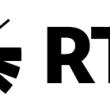Let’s start with the obvious: Cole Smead is not Canadian, not an energy executive, and certainly not the stereotypical oil-and-gas cowboy riding around Alberta in boots and a F-150. He’s a U.S.-based investor sitting in Phoenix, Arizona—CEO and Portfolio Manager at Smead Capital Management. But when it comes to understanding the seismic tremors beneath the Canadian energy patch, Smead is sharper than most insiders.
As he puts it, “not even Canadians understand what’s going on in Canada”.
Ouch. But fair.
In his recent sit-down with Amber Kanwar on In the Money1, Smead delivers a full-throated contrarian sermon on why Canadian oil is grossly mispriced, why consolidation is inevitable, and why investors clinging to outdated models are sleepwalking through one of the most asymmetric investment setups in the market today.
This Isn’t 2020 Anymore
Remember the dark days of 2020 when oil briefly went negative? You had to pray—literally—that balance sheets would survive, that executives would stop burning cash like it was diesel in a shale rig. Faith was the only strategy.
Not anymore.
“These companies are delevered. You’re not paying five to seven times EBITDA for a bunch of financial risk anymore,” Smead says. “That existential crisis of solvency? It’s just not present”.
And yet, market valuations are behaving like nothing’s changed. Investors are still applying old, risk-adjusted multiples to businesses that have dramatically improved their financial health. “If your leverage is lower, people normally pay higher multiples for you… but people are still using the old multiples,” he notes, deadpan.
Who’s Your Daddy?
Smead’s favorite framework for analyzing the Canadian oil landscape is as blunt as it is brilliant: “Who’s your daddy?”
It’s not a punchline. It’s a thesis.
Every major Canadian oil player, he argues, has a dominant backer or “daddy” guiding its destiny:
- Strathcona? Daddy = Adam Waterous.
- Cenovus? Daddy = Li Ka-Shing’s CK Hutchison Group.
- Imperial? Daddy = ExxonMobil.
- CNQ? Daddy = Murray Edwards.
And if you don’t have a daddy? You’re an orphan—ripe for consolidation.
This isn’t poetic license. It’s M&A arithmetic. As Smead bluntly puts it, “If you’re not one of the four or five majors, what are you doing to become attractive to them?”
Meg Energy: The Prom Queen of Takeout Targets
A few months ago, Smead correctly predicted that MEG Energy was a sitting duck. Now Strathcona has made a lowball, mostly-stock offer for MEG, and—surprise!—MEG’s stock is trading well above the offer price. Why? Because nobody believes that’s the final bid.
“The market is effectively saying, ‘At a 12% premium, I’ll give up my stock.’ That tells you everything,” Smead said.
His view? Strathcona will get MEG—at a higher price. Don’t bother waiting for a white knight. “Do you see anyone else coming to the table?” Kanwar asks.
Smead doesn’t blink. “I don’t.”
Capital Discipline or ED?
Smead gets right to the point on the broader existential funk hanging over Canadian energy CEOs. “I call this the low-T era,” he says. “These are folks that historically loved drilling. When they’re not drilling, it’s like they’ve lost their machismo.”
There it is. Testosterone as capital allocation metaphor.
This isn’t about gender—it’s about conviction. Smead argues that the best energy companies today are the ones shifting from wildcatters to financiers. Buybacks over drilling. Capital discipline over capex ego trips. But many execs are stuck between eras, unsure how to behave when Wall Street doesn’t reward their restraint.
Gas Is the Belle of the Ball (But She’s Overrated)
Everyone loves natural gas these days. AI! Electrification! LNG exports!
Smead’s not buying it.
“If oil people don’t get the right price, they cut rigs. If gas prices drop? The idiot keeps producing—and that idiot is the oil producer who gets gas as a byproduct,” he quips.
He lauds Tourmaline’s Mike Rose but holds no gas assets himself. His capital is squarely in oil—because “nobody wants it.” And that’s precisely why it’s cheap.
Whitecap and the Perils of the 8.4% Dividend
Dividends might look good on paper, but for Smead, Whitecap’s 8.4% yield is a bright red warning flare. “Would you pay 8.4% on bonds? No. And you're paying that to equity holders—the last people in the bankruptcy line,” he says.
Worse? The dividend likely can’t be sustained. “Usually when you find dividends like that, you’re walking into a business that at some point will cut that dividend.”
The Census–Suncor Merger That Might Break the Internet
Then came the nuclear bomb: Smead floats a merger theory so spicy it should come with a trigger warning.
His call? Cenovus gets sold to Suncor—with U.S. refineries spun out to create a leaner, meaner, more focused energy empire.
“You’re talking about the biggest deal in Canadian energy history,” Kanwar marvels.
Smead was unflinching: “Love is in the air. It’s deal season. And I think we’re going to see a lot more people whispering sweet nothings about mergers in each other’s ears at the Stampede.”
What’s Next: Strathcona, Athabasca, and the Path to Major Status
If Strathcona fails to get MEG? Don’t worry. Smead has a contingency plan.
“Athabasca has the high reserve life and low breakevens Adam Waterous looks for. It sits out there like the next logical target.”
His conviction? Waterous isn’t just building a company—he’s building a Canadian major. “He’s the king of Calgary,” Smead says. “You just need to respect that and deal with it.”
Final Word: You Get Paid to Wait
For those looking to time oil, chase headlines, or pray for a “rerating,” Smead offers a simple message: forget all that. Just own quality.
“These businesses are returning low to mid-teens on invested capital. If oil goes up? That’s free upside,” he says. “You don’t need a rerating. You don’t need higher oil prices. You just need to own the thing and let them work.”
TL;DR: The market is wrong. Canadian energy is underpriced, underloved, and undergoing a stealth regime change. The smart money is circling, the consolidation game is on, and Cole Smead is already picking winners while the crowd debates headlines.
Meanwhile, the daddy-less companies? They’d better clean up their books. Because winter is coming—and so are the majors.
Footnote:
1 "In the Money with Amber Kanwar | Cole Smead: The Market is Dead Wrong on Canadian Energy." 12 June 2025.
Copyright © AdvisorAnalyst















